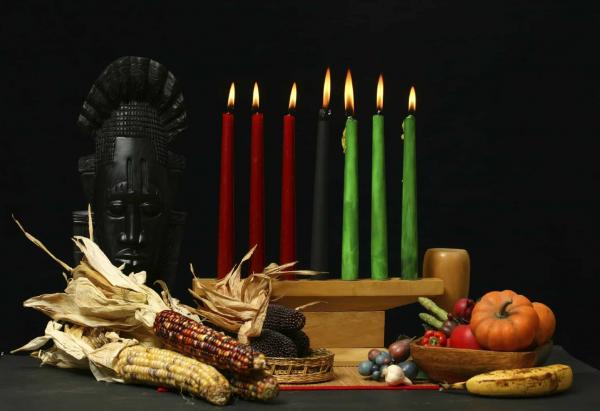
Just one day after Christmas captured the hearts of Christians, children and consumers everywhere, another holiday started.
That holiday is Kwanzaa, a weeklong celebration for which mainly families of African descent will honor African culture and history.
These families hope that lessons on their culture and history will make children prideful about their heritage, the New York Daily News reported.
"Knowing your past makes you grounded," Diani Tapsoba, who immigrated to Harlem from Burkina Faso, a West African country, told the Daily News. "It's important for parents to teach their children about African descent. When you know about your culture, it makes you more open to people."
The holiday, celebrated by about 4 percent of Americans, was first created by a California State University professor, Maulana Karenga, in 1966 at a time of civil unrest, the Democrat and Chronicle reported.
Karenga hoped Kwanzaa would promote positive "ethical principles and values "� so the goodness of the world can be shared and enjoyed by us and everyone," the Democrat and Chronicle reported.
Each day of Kwanzaa is represented by a specific principle - "unity, self-determination, collective work and responsibility, cooperative economics, purpose, creativity and faith," the Daily News reported.
These days also each have a specific name representing the specific principle of the day, broken down below by K12 Connections:
Day 1 - "Umoja" to celebrate unity.
Day 2 - "Kujichagulia" to celebrate self-determination.
Day 3 - "Ujima" to honor cooperation with others.
Day 4 - "Ujamaa" to celebrate supporting someone else.
Day 5 - "Nia" or the day to define your purpose in life.
Day 6 - "Kuumba" to celebrate creativity.
Day 7 - "Imani" to honor your faith.
The days are met with their own forms of celebration, including simple discussions and talks about each of the principles outlined above. Families will sometimes share African cultural stories and apply them to the specific day of celebration.
The faithful day of the holiday calls for families to celebrate how faith and family help them in their life, whether that's through meditation, writing letters or expressing their feelings to someone else, the Kwanzaa Guide, an instructional DVD on the holiday, explained.
This is because Kwanzaa enthusiasts feel faith helps people through "difficult times, allowing us to see beyond the immediate. For children and youth as well as adults, this principle provides grounds for hope and possibility," the Kwanzaa Guide explained.
Others feel, though, that Kwanzaa's faithful and ethical lessons aren't applied to one specific day, but year-round.
Ethelene Boyd of Davenport, Illinois, is one of those people. She told Quad-Cities Online, a collection of four Illinois-based newspapers, that the lessons people learn during Kwanzaa apply throughout the year.
She especially started feeling this way earlier in the year after she lost her daughter, who was a mother of three. For Kwanzaa, Boyd decided to honor her daughter, whose death taught her to appreciate the things she has more deeply.
"An incredible God deserves incredible praise," she told QC Online. "Kwanzaa is a continual thing; it's not a one-day thing. It's a life-changer. We need to ask ourselves, 'Who am I? Am I what I should be? Am I what I was put here to be?' We must rise every day to preserve and protect the hearts and minds of our children, the safety and security of our neighborhoods and the health and well-being of each other."
Above all else, celebrators say Kwanzaa is a holiday that honors community.
Jeff Fard - who owns the Brother Jeff Cultural Center in Denver, which, he says, has one of the biggest Kwanzaa celebrations in the United States - told a local Denver CBS station that Kwanzaa is a celebration for all people, no matter their ethnic or religious background.
"We encourage people from all race and backgrounds to come and celebrate African American culture," Fard said. "We are celebrating values that are universal."

